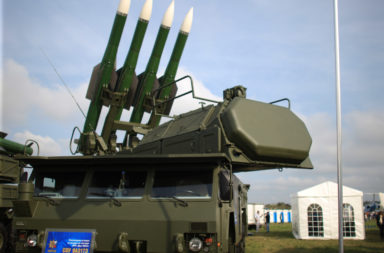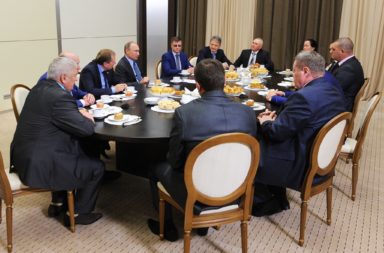Following the Paris and Brussels attacks, the role of blood relations between terrorists has been a point of discussion.
Is targeting family members the most effective way to capture, correct or punish militants?
Russian authorities seem to believe it is.
For decades, Russia has been following an interesting counter-terrorism strategy to hit the militants where it might hurt the most- take down their families or close relatives. In fact, Russia even successfully crushed an Islamic rebellion in the Caucasus, using this very same method. This method could thus also have global relevance, as analysts believe that over 30 percent of those who are part of terrorist attacks, share familial relationship with at least one other attacker.
In an effort to fight terrorism, especially in the Caucasus area, Russian security officials would allegedly capture, torture or murder close family members or even distant relatives of suspected militants.
What makes them so confident about the effectiveness of this approach? What makes security authorities believe that family is key to negotiating with terrorists? To understand this better, let us run through the emergence of family connections in some of the world’s most horrible terrorist attacks.
- Ibrahim and Khalid el-Bakraoui who blew themselves up as part of the horrifying Brussels attacks, were brothers.
- Brothers Salah and Brahim Abdeslam were instrumental in executing the spine-chilling Paris attack on November 13th 2015.
- A teenage boy and his elder sister constructed an explosive which was set off by their brother at Moscow’s Domodedovo Airport in 2011, claiming 36 victims.
- Sisters Amanat and Roza Nagayeva turned suicide bombers at an airplane and Russian subway in 2004.
- Dzhokar and Tamerlan Tsarnaev, Chechen brothers, set off bombs in the deadly Boston Marathon bombing in 2013.
There seems to be an interesting pattern here. It appears as if when terrorists are related to each other, they are better at bloodshed. The Russian counterinsurgency approach comes as no surprise then, when the issue is viewed with this perspective.
In fact, member of Russia’s human rights council Kirill V. Kabanov warns that terrorists should understand that their “relatives will be treated as accomplices.” He explains this further, “When a person leaves to become a terrorist, he can kill hundreds of innocents. Those are the morals we are talking about. We should understand, the relatives must fight this first. If the relative, before the fact, reported it, he is not guilty. If he did not, he is guilty.”
However, is this logic really ethical or absolutely effective?
The answer can be found in the case of the Paris attacks.
The family of alleged terrorist Hasna Aitboulahcen, have sought legal action against authorities for killing her. Aitboulachen was 26-year-old woman was gunned down in a Paris suburb after the deadly November 13 attacks. She was killed alongside her cousin Abdelhamid Abaaoud, the Belgian-Moroccan national who had an important role in the Paris terror attacks. Aitboulachen’s family claims that she was not directly involved in any terrorist activities and was under pressure from her cousin to find and arrange accommodation, where they were eventually killed. The family lawyer Fabien Ndoumou said, “I consider that Hasna Aitboulahcen is a victim. She was under pressure from her cousin, who threatened her family and the families of her friends.”
Here again we see the ‘family’ element influencing Aitboulachen to participate in terrorist activity, or was she unfortunately caught in the crossfire because of the idea her familial relation with a terrorist makes her a terrorist?
Contrary to what Russian security officials propose, it is indeed possible that the relatives of hardened terrorists remain completely unaware of what their criminal family members are plotting. This is explained by the arrest of Paris attackers Salah and Brahim Abdeslam’s third brother, Mohamed Abdeslam, who was arrested after the massacre. He was then released without any charges, and afterward released a statement saying, “My parents are truly shocked. I am thinking of the victims. I did not know that they had been radicalised.”
Using family as a link to tackle terrorism can be an interesting approach, but authorities should be careful not to make it an indiscriminate norm, or else it could destroy many innocent lives.




